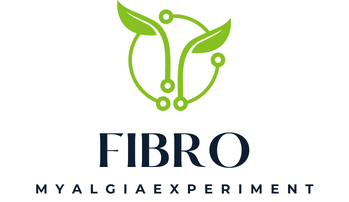Gastroesophageal Reflux Disease, commonly known as GERD, is a condition where acid from the stomach flows back into the esophagus, leading to heartburn and discomfort. The disease doesn’t just affect your physical health but can also impact your daily life. In fact, according to PubMed, a free search engine accessing the MEDLINE database of references and abstracts on life sciences and biomedical topics, GERD affects about 20% of the American population. In this article, we’ll delve into some of the best dietary strategies that can help manage GERD symptoms.
1. Understanding GERD
Before we dive into the dietary strategies, it’s important to understand what GERD is. As mentioned earlier, GERD is a disease where acid from the stomach flows back into the esophagus due to a weak or damaged lower esophageal sphincter (LES). This results in symptoms like heartburn, chest pain, difficulty swallowing, and regurgitation of food or sour liquid.
Dans le meme genre : How Does Vagus Nerve Stimulation Affect Chronic Depression and Anxiety?
GERD can impact your daily routine and quality of life. For example, it can disrupt sleep, lead to eating difficulties, and even affect your social activities due to the discomfort it causes. In severe cases, GERD can lead to esophageal cancer. Hence, it’s essential to manage GERD effectively, and diet plays a crucial role in this.
2. What to Include in Your Diet
If you suffer from GERD, there are certain foods you should include in your diet. These foods can help alleviate GERD symptoms and promote a healthier digestive system.
Dans le meme genre : Can Urban Beekeeping Initiatives Improve Environmental Health and Community Well-being?
According to a review article indexed by Google Scholar and published in the World Journal of Gastroenterology, a diet rich in fruits, vegetables, and whole grains can help manage GERD. These foods are low in fat and high in fiber, which can help control stomach acid levels and prevent reflux.
Fruits and vegetables like bananas, melons, peas, and carrots are known to reduce stomach acid. They also contain a lot of water, which can dilute stomach acid and reduce acid reflux.
Whole grains like oatmeal, brown rice, and whole wheat bread can also help. They are high in dietary fiber, which can absorb excess stomach acid and reduce the chances of acid reflux.
3. What to Avoid in Your Diet
Just as there are foods that can help manage GERD, there are also foods that can trigger GERD symptoms. Some of these foods increase stomach acid production, weaken the LES, or slow down digestion – all of which can lead to acid reflux.
Foods high in fat, such as fried foods, fatty meats, and full-fat dairy products, can slow down digestion and lead to increased pressure in the stomach. This can cause the LES to relax, resulting in acid reflux.
Caffeinated beverages and alcohol can also trigger GERD symptoms. They can relax the LES and increase stomach acid production. Similarly, foods like onions, garlic, and spicy foods can also increase stomach acid production and trigger GERD symptoms.
4. Eating Habits and GERD
Apart from what you eat, how you eat can also affect GERD symptoms. Changing your eating habits can significantly help manage GERD.
Eating smaller, more frequent meals can help reduce the pressure on the LES and prevent acid reflux. According to a study indexed in Crossref, a citation linking service, people with GERD who ate smaller, more frequent meals had fewer reflux episodes than those who ate three large meals a day.
Avoiding lying down or going to bed immediately after eating can also help. When you lie down, gravity can cause stomach acid to flow back into the esophagus. Waiting at least two to three hours after eating before going to bed can help prevent this.
5. The Role of Weight Management in Controlling GERD
Weight management plays a significant role in controlling GERD. According to several studies indexed in PubMed, there is a strong correlation between obesity and GERD. Excess weight can put extra pressure on the stomach, causing the LES to open and allow stomach acid to reflux into the esophagus.
In a study published in the American Journal of Gastroenterology, weight loss was found to be an effective strategy for managing GERD symptoms. Even a small decrease in body weight can significantly reduce GERD symptoms.
Therefore, maintaining a healthy weight through a balanced diet and regular exercise can significantly help manage GERD.
In conclusion, while there’s no one-size-fits-all approach to managing GERD, a combination of the right diet, eating habits, and weight management can go a long way in controlling this disease. It’s important to remember that each individual is different, and what works for one person may not work for another. Therefore, it’s always best to consult with a healthcare provider before making any significant dietary changes.
6. The Importance of Hydration for Managing GERD
Drinking plenty of water is another beneficial strategy for managing GERD that you may overlook. It’s simple, easy, and yet incredibly powerful. Water doesn’t just quench your thirst, but it also helps in controlling GERD.
Water aids in digestion and helps to dilute excess stomach acid, preventing acid reflux. Furthermore, drinking water can help rinse away acid that has accumulated in your esophagus, providing relief from the discomfort associated with GERD.
A study referenced in PubMed and Crossref showed that drinking alkaline water with a pH of 8.8 can help deactivate pepsin, an enzyme that causes damage to the esophagus in people with acid reflux. This suggests that choosing the right kind of water can also make a difference.
However, remember to avoid gulping down large volumes of water at once. Like with food, smaller, more frequent sips can help prevent putting extra pressure on the LES.
7. The Role of Probiotics in Managing GERD
Probiotics are live bacteria and yeasts that are good for your health, especially your digestive system. Although people often think of bacteria and other microorganisms as harmful, your body is full of bacteria, both good and bad.
Probiotics are often called "good" or "friendly" bacteria because they help maintain a healthy gut. They can help balance your "good" and "bad" bacteria and keep your body functioning as it should.
Research cited in Google Scholar and PubMed suggests that probiotics may help control GERD symptoms by promoting a healthier digestive system. They do this by enhancing the mucosal barrier function of the esophagus, thus reducing the exposure of the esophagus to gastric acid.
Yogurt, kefir, sauerkraut, tempeh, and kimchi are all great sources of probiotics. You can also take probiotic supplements, but as always, it’s best to consult with a healthcare provider before starting any new supplement regimen.
Conclusion
Having GERD doesn’t mean you have to suffer in silence. Through tweaks in your diet, changes to your eating habits, and effective weight management, you can control your GERD symptoms and improve your quality of life.
Remember, what you include in your diet – such as fruits, vegetables, whole grains, water, and probiotics – can be just as important as what you exclude. Small, frequent meals can help prevent overloading your LES, and drinking plenty of water can aid in digestion and dilution of stomach acid.
Although managing GERD requires making some adjustments to your lifestyle, the benefits are worth it. A healthier diet not only helps reduce GERD symptoms, but it can also contribute to weight loss and a better overall well-being.
Remember, everyone is unique, and what works for one person may not work for another. Always consult with a healthcare provider before making any significant dietary changes. With the right approach and ongoing care, GERD can become manageable, and you can lead a comfortable and healthful life. As with any health condition, early detection, understanding, and proper management of GERD are key.






